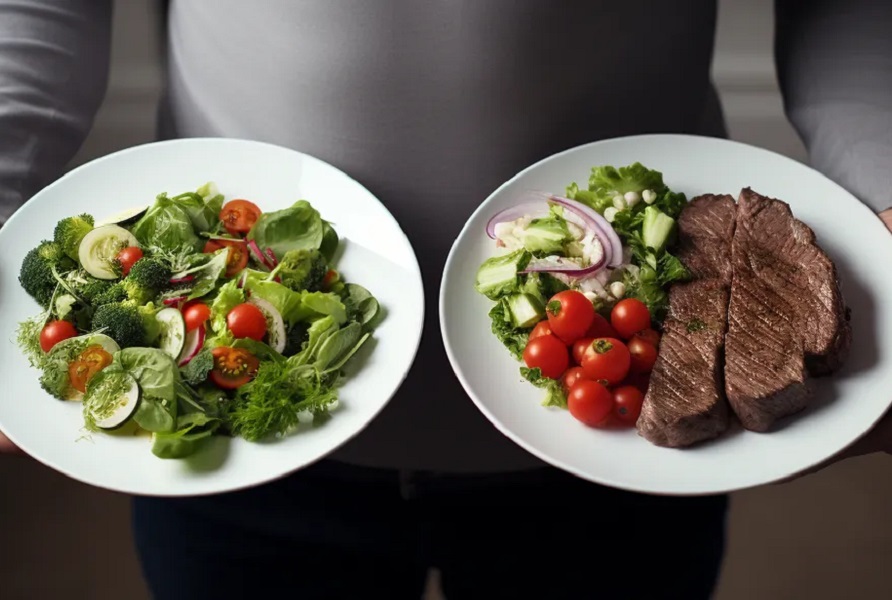11 Dec 2024

Tired Earth
By The Editorial Board

From Impossible Burger to "Meatless Mondays," going meat-free is certainly in vogue. But a person's genetic makeup plays a role in determining whether they can stick to a strict vegetarian diet, a new Northwestern Medicine study has found.
The findings open the door to further studies that could have important implications regarding dietary recommendations and the production of meat substitutes.
"Are all humans capable of subsisting long term on a strict vegetarian diet? This is a question that has not been seriously studied,"said corresponding study author Dr. Nabeel Yaseen, professor emeritus of pathology at Northwestern University Feinberg School of Medicine.
A large proportion (about 48 to 64%) of self-identified "vegetarians" report eating fish, poultry and/or red meat, which Yaseen said suggests environmental or biological constraints override the desire to adhere to a vegetarian diet.
"It seems there are more people who would like to be vegetarian than actually are, and we think it's because there is something hard-wired here that people may be missing."
Several genes involved in lipid metabolism, brain function
To determine whether genetics contribute to one's ability to adhere to a vegetarian diet, the scientists compared UK Biobank genetic data from 5,324 strict vegetarians (consuming no fish, poultry or red meat) to 329,455 controls. All study participants were white Caucasian to attain a homogeneous sample and avoid confounding by ethnicity.
The study identified three genes that are significantly associated with vegetarianism and another 31 genes that are potentially associated. Several of these genes, including two of the top three (NPC1 and RMC1), are involved in lipid (fat) metabolism and/or brain function, the study found.
"One area in which plant products differ from meat is complex lipids," Yaseen said. "My speculation is there may be lipid component(s) present in meat that some people need. And maybe people whose genetics favor vegetarianism are able to synthesize these components endogenously. However, at this time, this is mere speculation and much more work needs to be done to understand the physiology of vegetarianism."
The study will be published Oct. 4 in the journal PLOS ONE. It is the first fully peer-reviewed and indexed study to look at the association between genetics and strict vegetarianism.
Why do most people eat meat?
Religious and moral considerations have been major motivations behind adopting a vegetarian diet, and recent research has provided evidence for its health benefits. And although vegetarianism is increasing in popularity, vegetarians remain a small minority of people worldwide. For example, in the U.S., vegetarians comprise approximately 3 to 4% of the population. In the U.K., 2.3% of adults and 1.9% of children are vegetarian.
This raises the question of why most people still prefer to eat meat products. The driving factor for food and drink preference is not just taste, but also how an individual's body metabolizes it, Yaseen said. For example, when trying alcohol or coffee for the first time, most people would not find them pleasurable, but over time, one develops a taste because of how alcohol or caffeine makes them feel.
"I think with meat, there's something similar," Yaseen said. "Perhaps you have a certain component -- I'm speculating a lipid component -- that makes you need it and crave it."
If genetics influence whether someone chooses to be a vegetarian, what does that mean for those who don't eat meat for religious or moral reasons?
"While religious and moral considerations certainly play a major role in the motivation to adopt a vegetarian diet, our data suggest that the ability to adhere to such a diet is constrained by genetics," Yaseen said. "We hope that future studies will lead to a better understanding of the physiologic differences between vegetarians and non-vegetarians, thus enabling us to provide personalized dietary recommendations and to produce better meat substitutes."
Source : sciencedaily.com
Comment